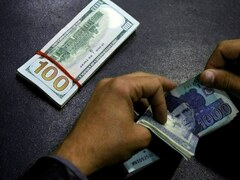Dividend to shareholders: IPPs seek restoration of pre-Finance Act 2019 provisions of ITO 2001
ISLAMABAD: The Independent Power Producers (IPPs) are said to have urged the government to restore pre-Finance Act, 2019 provisions of Income Tax Ordinance, 2001 with respect to dividend to their shareholders.
This was suggested by the IPPs, in a letter to Chairman Anomalies Committee Finance Bill, 2020-21 Abdul Razak Dawood.
According to Chairman Independent Power Producers Advisory Council (IPPAC), Khalid Mansoor, sixteen thermal IPPs were established after the announcement of Power Policy 1994, twelve as a consequence of Power Policy, 2002 and thirteen IPPs, mostly investors from China, were established under the Power Policy of 2015. At present, there are almost forty thermal IPPs and twenty four renewable IPPs (solar and wind) operating in Pakistan in line with the policy framework and package of incentives for private sector power generation projects in Pakistan in addition to the hydroelectric power producers.
Security documents, including Implementation Agreements (IAs) and Power Purchase Agreements (PPAs) were executed between IPPs and the GoP, through relevant authorities, in compliance with the power policies, prevalent at the time.
Investors in IPPs were guaranteed certain incentives through power policies, which were made part of the relevant statutes and security documentation.
In terms of the Power Policies of 1994 and 2002, income tax on payment of dividends to shareholders of IPPs was to be levied at 7.5 per cent and any excess was categorized as a pass-through item and was to be recovered through electricity tariff.
This incentive was incorporated in the Income Tax Ordinance, 2001. Tax and dividends paid to shareholders of IPPs attracted withholding tax at the rate of 7.5 per cent in terms of clause (a) of Division III of Part 1 of First Schedule of the Income Tax Ordinance. Withholding tax was also fixed at 7.5 per cent of the dividend through (a) of Division 1 of part III of first schedule of the Ordinance.
According to the IPPs, the wording of both clauses, before the amendment through Finance Act, 2019 was the same which is as follows " (a) 7.5 per cent in the case of dividends declared or distributed by purchaser of a power project privatized by Wapda or an shares of a company set for power generation or on shares of a company, supplying exclusively to power generation projects,"
Both clauses were replaced through Finance Act, 2019 with the following " (a) 7.5 per cent in case of dividend paid by Independent Power Purchasers where such dividend in a pass through item under an IA or PPA or EPP and is required to be re-submitted by CPPA-G of its predecessor or successor entity,"
The amendments introduced were not in compliance with the power policies and, consequently, have given rise to the following misconceptions;(i) the objective was to incentivise shareholders of IPPs, instead of "independent power purchasers", this mistake was corrected in circular No 9 of 2019 of FBR, however, the wording of the Ordinance remained unaltered' (ii) IA, PPAs and EPPs are executed by Independent Power Producers and not by Independent Power Purchasers;(iii) condition for availing 7.5 per cent tax on dividends include pass-through of dividends instead of pass through of withholding tax. Dividend is not and cannot be a pass-through item in any of the security documents executed by IPPs including IAs and PPAs. However, withholding tax on dividend is a pass-through item;(iv) power sector does not operate on open-market, therefore, IPPs are bound to provide the power generated to the national grid at the rate determined by the government and cannot seek to enhance or better their return by going into the 'market' as other major industrial units my be able to. The only return accruing to shareholders of IPPs is the return on equity, which is paid out in form of dividend. Nepra, when considering the equity IRR had considered the then prevailing withholding tax on dividend of 7.5 per cent (which is clearly shown in annex 6A of the Nepra upfront tariff determination of September 4, 2013), therefore change in the tax rate is not in consonance with Nepra laws and regulations and the approved tariff. The payment of tax over and above 7.5 per cent would reduce the IRRs guaranteed to the investors. Any increase in dividend tax rate (for example if it was increased to 100 per cent) would directly reduce shareholder IRR to zero and takes away any incentive for investors to enter this sector.
The investors had invested in Pakistan on the legitimate and reasonable expectation that their returns (i.e. dividends) will be protected and that the rate of final tax is enshrined in the Income Tax Ordinance, 2001 as well as the tariff approved by Nepra. This change has prejudiced investor confidence about investing in Pakistan with substantial long-term consequences.
Khalid Mansoor further stated that with a view to clarify the situation, IPPs engaged through its consultant with the then Chairman FBR and as a consequence the word "purchasers" was replaced with "producer" through "tax laws (second amendment) Ordinance, 2019" issued on December 27, 2019 and IPPs were assured that the situation would be restored through Finance Act, 2020. This was followed with another letter of May 4, 2020 to the current Chairperson FBR, followed by meeting with relevant officials.
However, the Finance Bill, 2020 is silent on the issue and no amendment, as promised has been proposed.
IPPs have requested that the anomalies committee to review the matter as part of its review of the Finance Bill, 2020, and the original provision of the Ordinance (before the amendment) be reinstated and the pre-Finance Act, 2019 position be restored.




















Comments
Comments are closed.